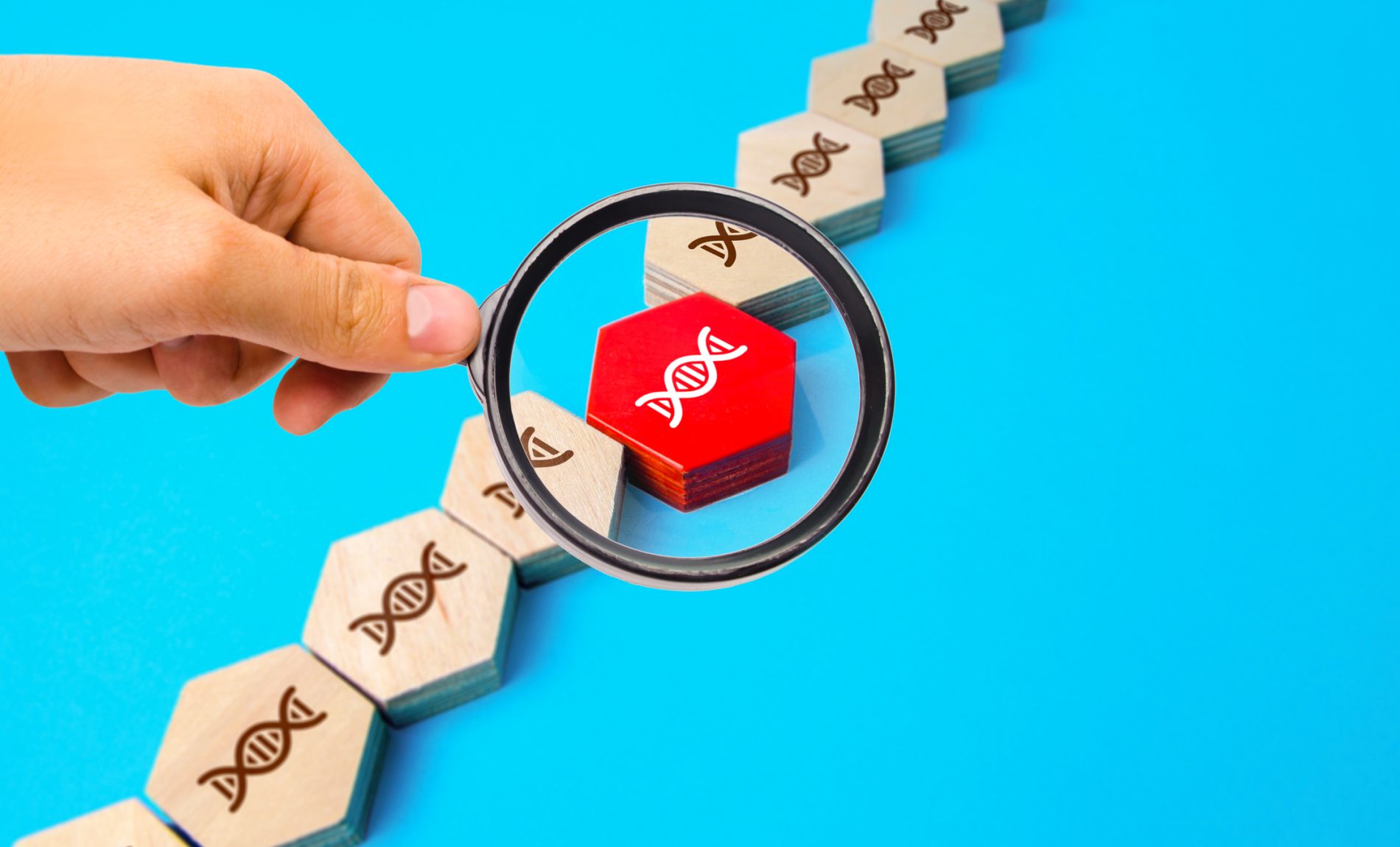Cancer Genetics Clinic provides helpful insight to patients and their doctors

Your doctor may recommend genetic counseling if you have a personal or family history of cancer that could be hereditary (run in families). The information it reveals can be helpful for you, your family members, and even your doctors. It can help determine what can be done to customize cancer treatment, reduce your risk of future cancers, or identify cancer at an earlier and more treatable stage.
The UAB Clinical Cancer Genetics Clinic at the O’Neal Comprehensive Cancer Center is staffed by genetic counselors who have training in medical genetics and counseling, as well as nurse practitioners. They work together to:
- Perform risk assessments based on detailed personal and family history
- Educate patients about cancer genetics
- Discuss whether and why testing may be helpful for a particular patient
- Coordinate genetic testing and consent
- Explain test results and what they mean for you
- Communicate with doctors to make the best use of the information
If you’ve been referred to a genetic counselor, read on to learn more about the benefits.
Your first appointment
So, why are you here again? About 5-10% of cancers are caused by pathogenic genetic variants (harmful differences or mutations in the genes) that someone was born with. Your personal and family cancer history can provide clues to genetic counselors about whether genetic testing may be helpful — and if so, which test offers the best chance for useful results.
Most of your time in the clinic will be spent talking with a genetic counselor, like Alexis Heatherly, lead genetic counselor for the UAB Clinical Cancer Genetics Clinic.
“We’re experts in helping establish a risk assessment based on your personal and family history of cancer to help determine if you have a hereditary form of cancer or may carry a pathogenic variant in a gene that would put you at an increased risk for developing certain types of cancer,” Heatherly said. “Cancer genetic testing is not recommended for everyone, and not all those who might benefit from testing choose to be tested, for various reasons. Genetic counseling provides you with the information you need to make the most informed decision on testing.”
Heatherly says the first appointment takes about an hour. Patients discuss their personal and family cancer history, the connection between genetics and cancer, and the meaning and outcomes of testing. “We may learn enough from family cancer history alone to benefit the patient in terms of awareness and increased screening,” she said.
That may be the end of your genetic counseling. For example, multiple cases of lung cancer in one family may point to certain exposures in their shared environment rather than inherited genetic mutations.
After the cancer history intake questions, the counselor briefly educates patients about the relationship between genetics and cancer. “We emphasize that a pathogenic variant in a gene may be one among many types of risk factors – similar to having a first line of defense down from protection against cancer,” Heatherly said. “If someone is born with a pathogenic variant, it does not mean that they will develop cancer, but rather that they have an increased risk.”
Why test?
After the intake and discussion, counselors may present testing as an option. “We explain what testing can and can’t do, and we don’t try to steer their ultimate decision,” Heatherly said. Your genetic counselor can help arrange for blood or saliva collection and testing the same day as your appointment.
Genetic testing can:
- Guide your oncologists on treatment recommendations
- Identify other cancer risks
- Help doctors adjust screening guidelines to lower your risks of other cancers
- Empower relatives to be proactive about their own cancer risks
As an example, some women are born with a gene variant known as BRCA. About 55-72% of women who inherit a harmful BRCA1 variant and 45–69% of women who inherit a harmful BRCA2 variant will develop breast cancer by the age of 70-80. Genetic counselors work with your doctors, who will recommend enhanced screening and other measures to perhaps avoid cancer or catch it early.
Discussing results
The results of genetic testing usually are discussed with patients first over the phone, then a detailed letter is sent to patients and their doctors. If your results indicate a risk for cancers other than the type you’ve been diagnosed with, referrals to other specialists may be made.
Telling your family
Heatherly often helps patients think about how they want to tell family members they are getting tested and how it might reveal information that their family also can use. “While there is no one answer, many patients choose to use the results letter, which we designed to tell relatives what they might need to know about the implications for their own health care,” she said. This letter includes a website that makes it easy for relatives to find a genetic counselor near them.
Working with your doctors
Genetic counselors may serve many patient populations, but at the O’Neal Comprehensive Cancer Center, Heatherly and her colleagues are embedded in cancer specialty clinics. Some of these counselors work closely with oncologists to see patients at the time of their oncology appointment, and some serve patients within the Clinical Cancer Genetics Clinic. Either way, these counselors are familiar with your doctors, your condition, and your challenges.
If you are interested in speaking with a genetic counselor, please call 205-934-4983 to schedule an appointment or ask your doctor for a referral to the UAB Clinical Cancer Genetics Clinic.




